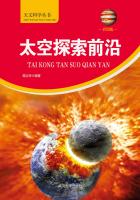The regulation of commerce with the Indian tribes is very properly unfettered from two limitations in the articles of Confederation, which render the provision obscure and contradictory. The power is there restrained to Indians, not members of any of the States, and is not to violate or infringe the legislative right of any State within its own limits. What description of Indians are to be deemed members of a State, is not yet settled, and has been a question of frequent perplexity and contention in the federal councils. And how the trade with Indians, though not members of a State, yet residing within its legislative jurisdiction, can be regulated by an external authority, without so far intruding on the internal rights of legislation, is absolutely incomprehensible. This is not the only case in which the articles of Confederation have inconsiderately endeavored to accomplish impossibilities; to reconcile a partial sovereignty in the Union, with complete sovereignty in the States; to subvert a mathematical axiom, by taking away a part, and letting the whole remain.
All that need be remarked on the power to coin money, regulate the value thereof, and of foreign coin, is, that by providing for this last case, the Constitution has supplied a material omission in the articles of Confederation. The authority of the existing Congress is restrained to the regulation of coin STRUCK by their own authority, or that of the respective States. It must be seen at once that the proposed uniformity in the VALUE of the current coin might be destroyed by subjecting that of foreign coin to the different regulations of the different States.
The punishment of counterfeiting the public securities, as well as the current coin, is submitted of course to that authority which is to secure the value of both.
The regulation of weights and measures is transferred from the articles of Confederation, and is founded on like considerations with the preceding power of regulating coin.
The dissimilarity in the rules of naturalization has long been remarked as a fault in our system, and as laying a foundation for intricate and delicate questions. In the fourth article of the Confederation, it is declared "that the FREE INHABITANTS of each of these States, paupers, vagabonds, and fugitives from justice, excepted, shall be entitled to all privileges and immunities of FREE CITIZENS in the several States; and THE PEOPLE of each State shall, in every other, enjoy all the privileges of trade and commerce," etc. There is a confusion of language here, which is remarkable. Why the terms FREE INHABITANTS are used in one part of the article, FREE CITIZENS in another, and PEOPLE in another; or what was meant by superadding to "all privileges and immunities of free citizens," "all the privileges of trade and commerce," cannot easily be determined. It seems to be a construction scarcely avoidable, however, that those who come under the denomination of FREE INHABITANTS of a State, although not citizens of such State, are entitled, in every other State, to all the privileges of FREE CITIZENS of the latter; that is, to greater privileges than they may be entitled to in their own State: so that it may be in the power of a particular State, or rather every State is laid under a necessity, not only to confer the rights of citizenship in other States upon any whom it may admit to such rights within itself, but upon any whom it may allow to become inhabitants within its jurisdiction. But were an exposition of the term "inhabitants" to be admitted which would confine the stipulated privileges to citizens alone, the difficulty is diminished only, not removed. The very improper power would still be retained by each State, of naturalizing aliens in every other State. In one State, residence for a short term confirms all the rights of citizenship: in another, qualifications of greater importance are required. An alien, therefore, legally incapacitated for certain rights in the latter, may, by previous residence only in the former, elude his incapacity; and thus the law of one State be preposterously rendered paramount to the law of another, within the jurisdiction of the other. We owe it to mere casualty, that very serious embarrassments on this subject have been hitherto escaped.
By the laws of several States, certain descriptions of aliens, who had rendered themselves obnoxious, were laid under interdicts inconsistent not only with the rights of citizenship but with the privilege of residence. What would have been the consequence, if such persons, by residence or otherwise, had acquired the character of citizens under the laws of another State, and then asserted their rights as such, both to residence and citizenship, within the State proscribing them? Whatever the legal consequences might have been, other consequences would probably have resulted, of too serious a nature not to be provided against. The new Constitution has accordingly, with great propriety, made provision against them, and all others proceeding from the defect of the Confederation on this head, by authorizing the general government to establish a uniform rule of naturalization throughout the United States.
The power of establishing uniform laws of bankruptcy is so intimately connected with the regulation of commerce, and will prevent so many frauds where the parties or their property may lie or be removed into different States, that the expediency of it seems not likely to be drawn into question.
The power of prescribing by general laws, the manner in which the public acts, records and judicial proceedings of each State shall be proved, and the effect they shall have in other States, is an evident and valuable improvement on the clause relating to this subject in the articles of Confederation. The meaning of the latter is extremely indeterminate, and can be of little importance under any interpretation which it will bear. The power here established may be rendered a very convenient instrument of justice, and be particularly beneficial on the borders of contiguous States, where the effects liable to justice may be suddenly and secretly translated, in any stage of the process, within a foreign jurisdiction.
The power of establishing post roads must, in every view, be a harmless power, and may, perhaps, by judicious management, become productive of great public conveniency. Nothing which tends to facilitate the intercourse between the States can be deemed unworthy of the public care.
PUBLIUS
____















